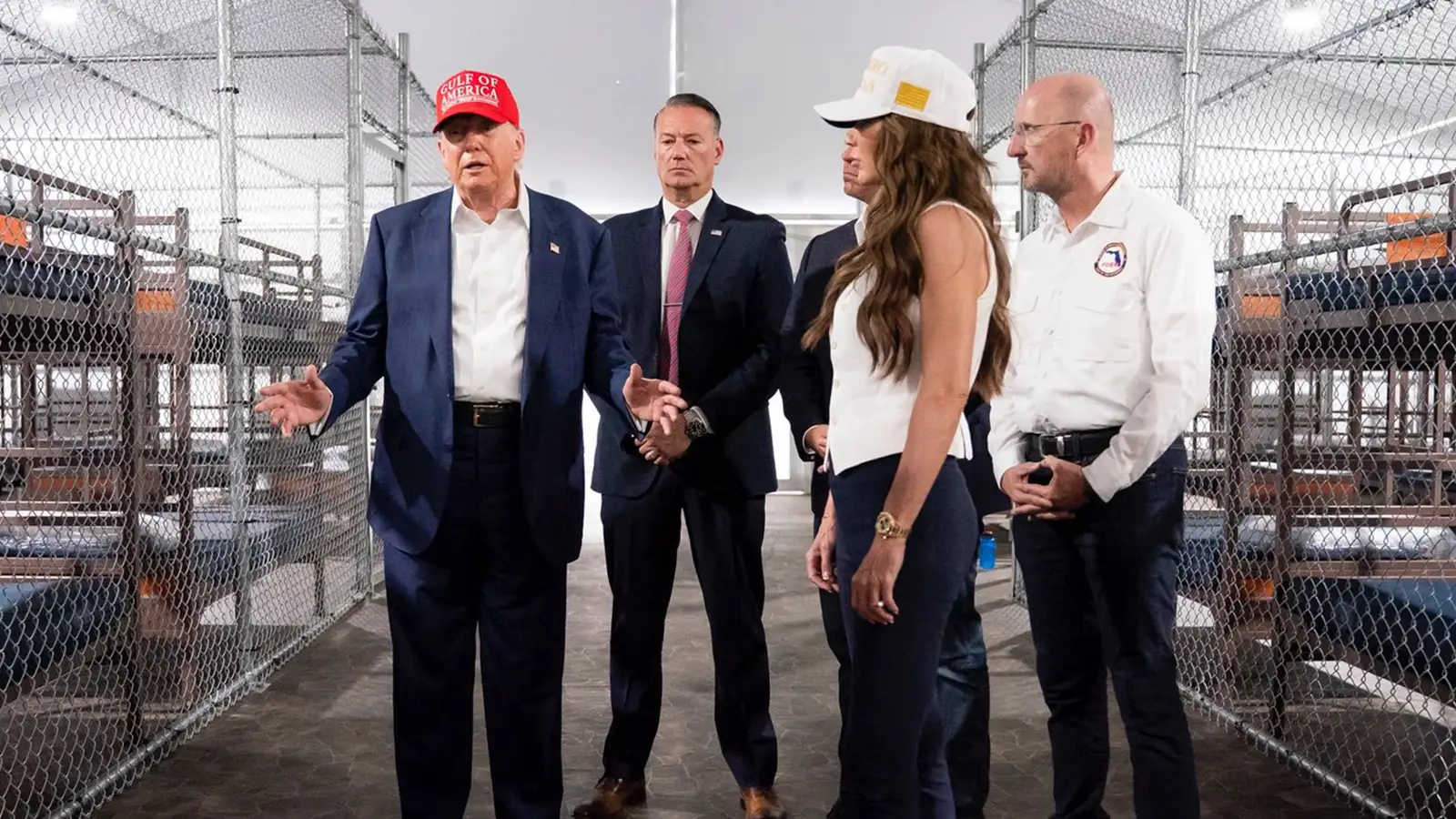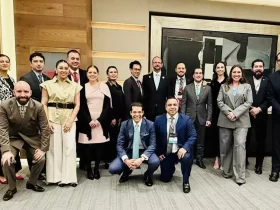Donald Trump has reinforced a harsh immigration policy centered around mass detentions and extreme conditions, which have been widely criticized as inhumane by human rights organizations and legal experts.
“Alligator Alcatraz”: A Prison in the Swamps
Trump recently visited a new immigrant detention center in the Florida Everglades, nicknamed “Alligator Alcatraz.” Surrounded by alligators and dangerous terrain, the facility holds thousands of migrants and was designed to discourage unauthorized immigration. However, it has drawn sharp criticism due to its extreme conditions and environmental concerns.
Reopening Formerly Closed Prisons
Trump’s immigration strategy includes reopening previously shut down facilities like FCI Dublin, which had a record of sexual abuse, medical neglect, and unsanitary conditions. These prisons, now housing non-criminal migrants, have raised legal and humanitarian concerns.
Detaining Migrants in Federal Prisons

Beyond traditional detention centers, migrants are being transferred to high-security federal prisons intended for convicted criminals. There, they face harsh conditions: poor hygiene, lack of proper food, isolation, and limited access to healthcare or legal representation. Civil rights groups have filed numerous lawsuits citing constitutional violations.
Detaining Families and Children
Trump has also reinstated family detention centers, where women and children are held together. Human rights advocates warn that these facilities cause severe emotional trauma, especially for minors, and echo past incidents of mistreatment.
Overall Assessment
Trump’s prison-based immigration model relies on strict confinement as a deterrent, despite international recommendations and widespread criticism. Reports have documented abuse, degrading conditions, and psychological harm—especially among children.
While some view these measures as effective border control, many experts argue they are not only morally questionable but also potentially unlawful








































Leave a Reply